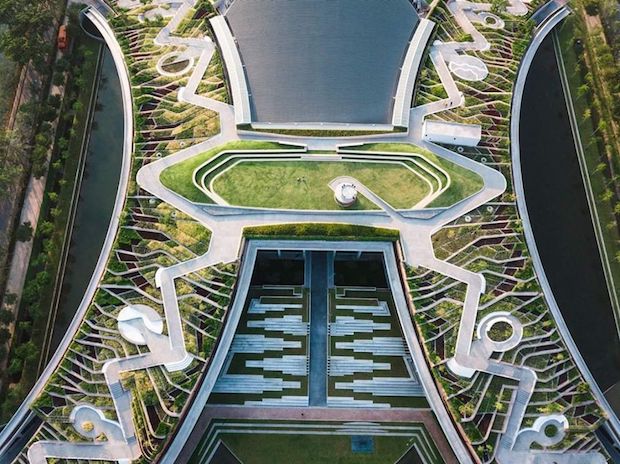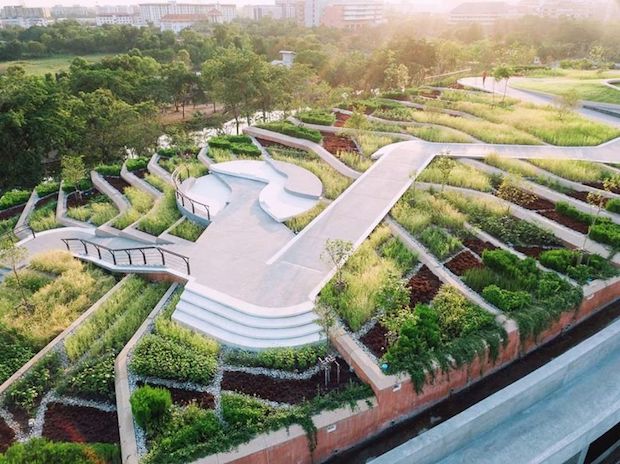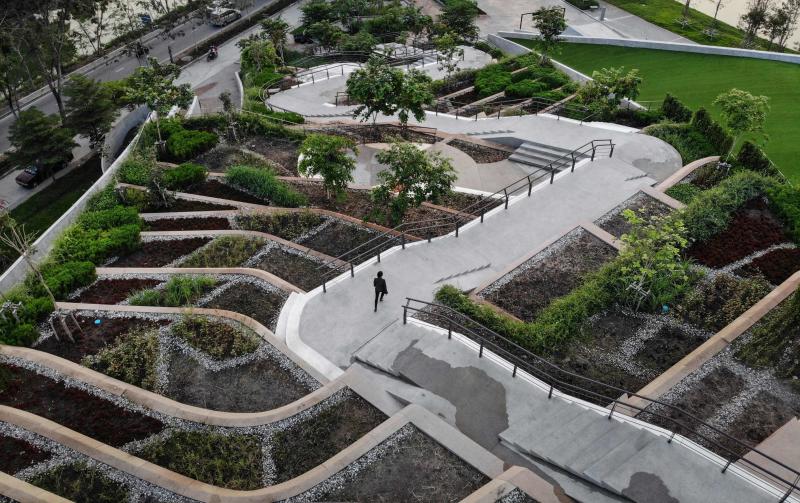Bangkok's Thammasat University, one of the oldest in Thailand, has a new claim to fame: Asia's largest urban rooftop farm.
The 7,000-square-metre space mimics rice terraces in the north of the country and can help curb some of the impacts of climate change, such as frequent flooding, said Kotchakorn Voraakhom, the landscape architect behind the project to Bangkok Post.
"We tend to make a distinction between buildings and green spaces but green spaces can be part of building design in cities like Bangkok, which has few green spaces," said Ms Kotchakorn, the chief executive and founder of Landprocess.

With her firm Landprocess, Voraakhom has designed a new green roof on the Rangsit campus of Thammasat University, about 40km north of central Bangkok. Bangkok is extremely vulnerable to catastrophic flooding — in fact, according to the World Bank, nearly 40 percent of the city, which is built on a river delta, may flood annually by 2030, and this situation has been greatly exacerbated by paved-over earth and intensifying rainy seasons.
The structure encompasses a flood-water management system and also Asia’s largest rooftop organic farm. “We’ve combined the principles of modern landscape architecture with traditional agricultural knowledge to create a Swiss army knife of environmental solutions, integrating water management, green energy, green public space, and more,” says Ms Kotchakorn to TED.

The rooftop farm at Thammasat University in Rangsit, about 40km from Bangkok's city centre, is open to anyone who wishes to grow rice, vegetables and herbs, said Prinya Thaewanarumitkul, a vice vector at the university.
"Thailand is an agricultural society, but in the cities we are so cut off from the source of our food. With rooftop farms, we can also improve urban food security," he said.
With more than two-thirds of the world's population forecast to live in cities by 2050, according to the United Nations, urban agriculture could be critical.

As climate risks increase, rooftop farms will no longer be a novelty, said Ms Kotchakorn, who was named last month on Time magazine's inaugural "100 Next" list of rising stars.
"There are limited opportunities to create new green spaces in cities," she told the Thomson Reuters Foundation.
"Urban rooftop farms are an easy and effective climate solution, and should be the norm."


















